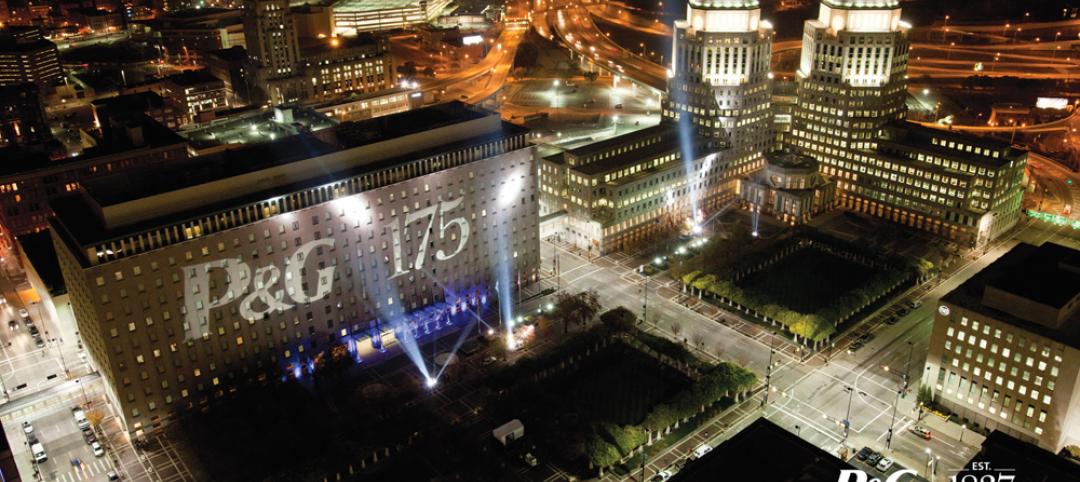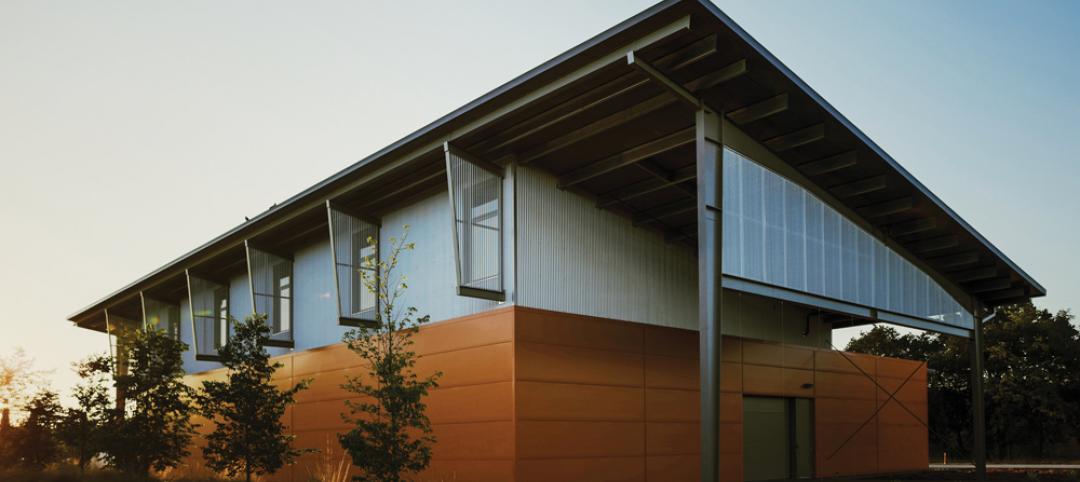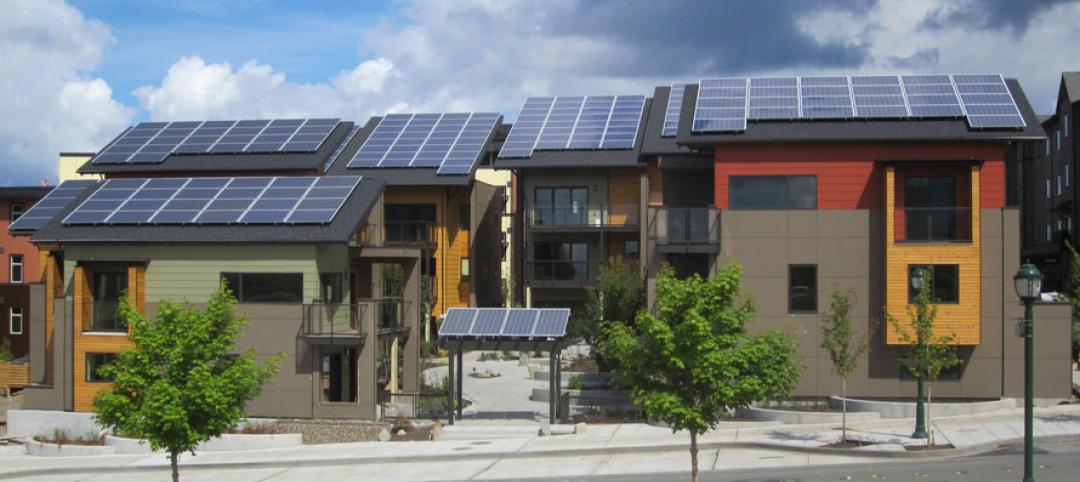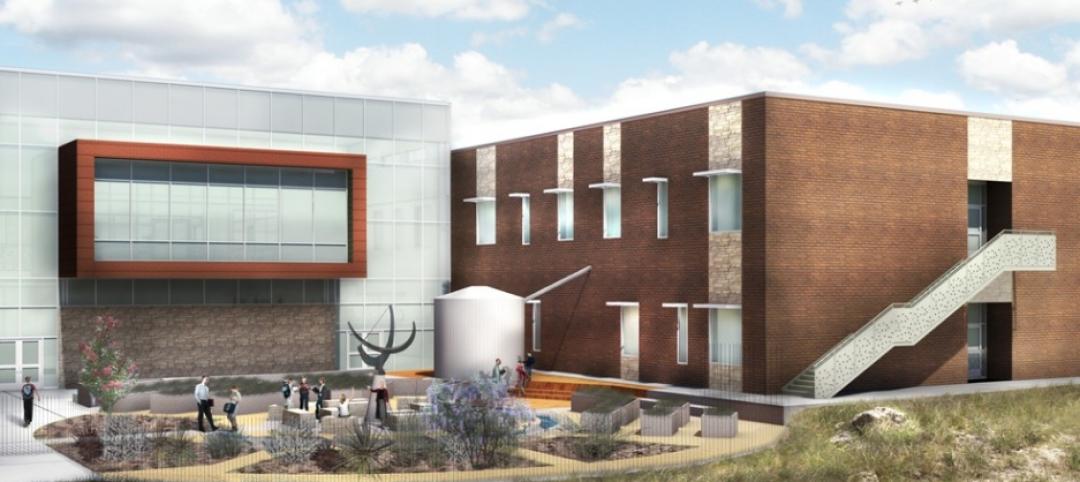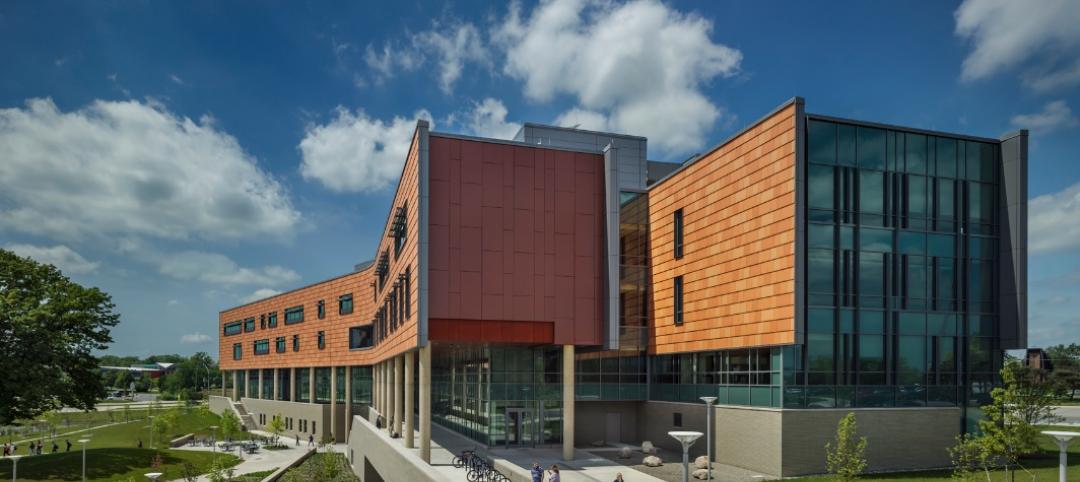Ken Martin, AIA, NCARB, has joined Leo A Daly to lead its Dallas office as Vice President and Managing Partner.
Most of Martin’s 25-plus-year career in design, planning, and management has focused on hospitality, which happens to be the Dallas office’s largest market. He joins Leo A Daly from DLR Group, where he was that firm’s hospitality and convention center expert. He reports to COO John Kraskiewicz.
Martin assumes his new post at a time when Leo A Daly has several large-scale hospitality-design projects in the works or just completed. These include the five-star 285-room Hotel Talisa in Vail, Colo.; the 582-room Ritz-Carlton Orlando Grande Lakes in Florida; and the 12-story 333-room Marriott Downtown Omaha in Nebraska, which opened last month as the first phase of that city’s entertainment Capitol District.
“Hospitality, I would argue, leads a lot of innovation,” says Martin in a video that Leo A Daly released to announce his hiring. “You cannot be reactive in this business.”
He praises his new employer as “one of the preeminent design firms in the hospitality industry,” and talks about the importance of sustainability and meeting guest expectations in hospitality design.
In a recent article he wrote for Hotel Business Review, Martin shared his thoughts about adaptive reuse as “a key piece of many [hotel] brands’ strategy,” and how authenticity in the redesign of existing buildings is “something of the Holy Grail.” On such projects, Martin said he asks the following questions to guide his teams’ designs: “What has that neighborhood been? Where is it going? Culturally, what are the drivers, and who are our local patrons going to be? What do they value? Who are the guests, why are they traveling to this city (or this neighborhood), and what are they looking for? That is to say: How do you integrate?”

Ken Martin was considering his professional legacy when, at 50, he switched firms. Image: Leo A Daly
Martin began his career as a museum exhibit designer for University of New Mexico, where he earned a bachelor’s degree in architecture. He spent nearly 27 years with DLR Group, rising to the level of Principal and National Hospitality Leader. One of the projects he was working on for DLR before he left was the renovation of the 16-story, 250-room Laylow Hotel by Marriott Autograph in Waikiki, Hawaii.
The 50-year-old Martin tells BD+C that several factors drove his decision to switch firms. For one thing, he and his wife are recent empty nesters, which gave them flexibility to relocate.
Martin was also giving more thought to his professional legacy. “I know there are is a finite number of projects I’ll get to do. So you start to ask yourself—blue sky—how can I make the biggest impact?”
He became aware that Leo A Daly was looking for a managing principal as Patricia Miller, its corporate director of hospitality, was moving into a global practice leader role for the firm. During the interview process, Martin was impressed with the projects that Leo A Daly was working on “that hint at a new level of design for the firm. This is a place where I can do signature work.”
He says that he brings a different approach to architectural programming and design, having been on the front end of DLR’s large conference center/hotel projects.
Leo A Daly is strong in the civic market. And there are other specialties across its 30 offices “that are begging to be infused with hospitality design and energy,” says Martin. The convention center/hotel sector is one of these; global healthcare and aviation are two others.
“Enlisting the strength of our hospitality teams in those projects and pursuits is a great avenue to doing great work,” says Martin.
Related Stories
| Nov 8, 2013
Oversized healthcare: How did we get here and how do we right-size?
Healthcare facilities, especially our nation's hospitals, have steadily become larger over the past couple of decades. The growth has occurred despite stabilization, and in some markets, a decline in inpatient utilization.
| Nov 8, 2013
Can Big Data help building owners slash op-ex budgets?
Real estate services giant Jones Lang LaSalle set out to answer these questions when it partnered with Pacific Controls to develop IntelliCommand, a 24/7 real-time remote monitoring and control service for its commercial real estate owner clients.
| Nov 8, 2013
S+T buildings embrace 'no excuses' approach to green labs
Some science-design experts once believed high levels of sustainability would be possible only for low-intensity labs in temperate zones. But recent projects prove otherwise.
| Nov 8, 2013
Net-zero bellwether demonstrates extreme green, multifamily style
The 10-unit zHome in Issaquah Highlands, Wash., is the nation’s first net-zero multifamily project, as certified this year by the International Living Future Institute.
| Nov 8, 2013
Walkable solar pavement debuts at George Washington University
George Washington University worked with supplier Onyx Solar to design and install 100 sf of walkable solar pavement at its Virginia Science and Technology Campus in Ashburn, Va.
| Nov 6, 2013
PECI tests New Buildings Institute’s plug load energy use metrics at HQ
Earlier this year, PECI used the NBI metrics to assess plug load energy use at PECI headquarters in downtown Portland, Ore. The study, which informed an energy-saving campaign, resulted in an 18 percent kWh reduction of PECI’s plug load.
| Nov 5, 2013
Net-zero movement gaining traction in U.S. schools market
As more net-zero energy schools come online, school officials are asking: Is NZE a more logical approach for school districts than holistic green buildings?
| Nov 5, 2013
New IECC provision tightens historic building exemption
The International Energy Conservation Code has been revised to eliminate what has been seen as a blanket exemption for historic buildings.
| Nov 5, 2013
Living Building Challenge clarifies net-zero definitions and standards
The Living Building Challenge has released the Net Zero Energy Building Certification to provide clearer definitions regarding what net zero really means and how it is to be achieved.
| Nov 5, 2013
Oakland University’s Human Health Building first LEED Platinum university building in Michigan [slideshow]
Built on the former site of a parking lot and an untended natural wetland, the 160,260-sf, five-story, terra cotta-clad building features some of the industry’s most innovative, energy-efficient building systems and advanced sustainable design features.




